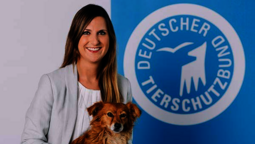In view of overcrowded animal shelters and rising costs, the German Animal Welfare Federation is sounding the alarm. Many animal shelters are already completely overcrowded or have had to impose admission freezes. One reason for this is the relinquishment of animals acquired without due consideration during the coronavirus pandemic. Rising energy prices, higher costs for animal feed and for veterinarians due to the planned adjustment of the fee schedule and the increase in the minimum wage will exacerbate the situation towards the fall. If income from donations also declines due to economic developments in Germany as a result of the war in Ukraine, charitable animal welfare in Germany is on the verge of collapse.
“Veterinary costs will explode and energy costs will go through the roof. Added to this are the cost increases due to the minimum wage and general inflation. The many animals in care are pushing staff to their limits. As inflation and the tense economic situation due to the war in Ukraine are also causing a noticeable drop in people's willingness to donate, practical animal welfare in Germany is facing the toughest autumn and winter ever experienced,” says Thomas Schröder, President of the German Animal Welfare Federation.
ANIMAL SHELTERS SUFFER FROM POLITICAL FAILURES
More and more animal shelters are overcrowded and can no longer take in animals. “Animal shelters do everything they can to offer every animal safe care,” says Schröder. “However, they are having to pay for what the politicians in local, federal and state governments have failed to do despite all the warnings: Providing animal shelters with sufficient funding to cover their costs, regulating the trade and keeping of pets, banning the online trade in animals and introducing a mandatory certificate of competence for pet owners. Many of the animals that come to the animal shelter as indirect coronavirus victims also require intensive care, especially the many puppies from transportation that violates animal welfare.”
EXTREMELY CRITICAL FINANCIAL SITUATION
According to the German Animal Welfare Federation, the financial situation of animal shelters is also extremely critical and is being exacerbated by rising costs. Most animal shelters are old buildings and there was never any money for energy-saving measures, for example. For years, local authorities, which usually outsource the care of found animals to local animal shelters, have not been able to cover the costs of this compulsory municipal task: “The payments made by local authorities often bear no relation to the actual costs of caring for found animals,” says the President of the German Animal Welfare Federation.
“RESCUE PLAN BEFORE IT'S TOO LATE”
“We are calling on local authorities to finally take action now and come to a quick and unbureaucratic agreement with local animal shelters on the assumption of costs. What is needed is an increase in the reimbursement of found animal costs by at least 40 percent and further investment aid. We also believe that the federal government has a duty: it must provide generous funding for the consumer foundation for animal shelters agreed in the coalition agreement and launch it immediately before it is too late,” said Schröder. It is urgently necessary to provide the funds not only for investments, but also to compensate for the drastic additional costs. “We need concerted action for animal shelters: The federal, state and local governments must come to the table with animal welfare as quickly as possible and prevent practical animal welfare in Germany from collapsing with a joint rescue plan.”






